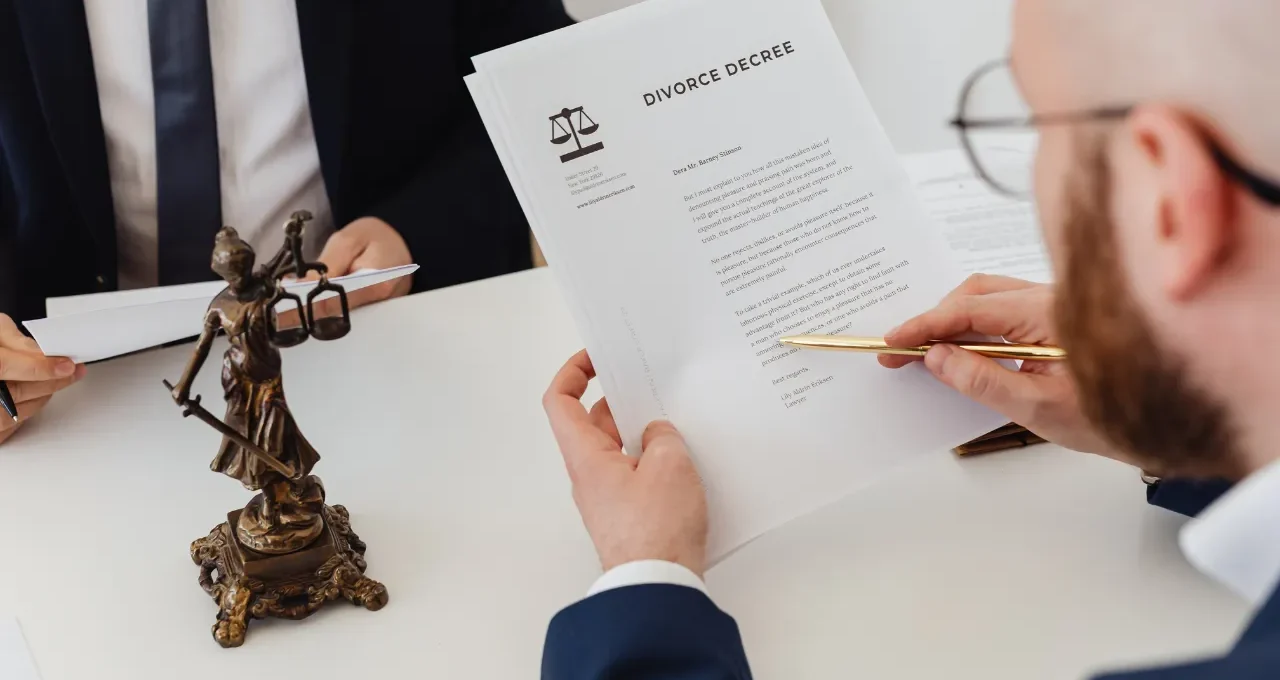Table of Contents
I want to share the story of Kasper Eriksen Legal Status, a Danish man whose journey in the U.S. turned from hopeful beginnings to a heartbreaking struggle with the immigration system.
His case is not just about one person it highlights how families can be torn apart by complex laws, missed paperwork, and strict enforcement. Many people search for answers about his legal status, and today we’ll walk through the events that shaped his life and where things stand now.
Early Arrival in America
We often think exchange programs are simple cultural experiences. For Kasper, his life in the U.S. began in 2009 when he entered as a high school exchange student at Starkville High School in Mississippi.
It was there he met Savannah Hobart, a young woman who would later become his wife. Their love story began as teenagers and laid the foundation for everything that followed.
Love and Marriage in Mississippi

After finishing his program, Kasper returned to Denmark. But like many young couples, they couldn’t ignore their bond. In 2013, he legally returned to the U.S., and a year later in 2014, they Marriaged-based green card process. This gave him a 2-year conditional green card based on their marriage, since the relationship was still under two years old when approved.
The Importance of One Form
They probably didn’t realize how critical one piece of paperwork would be. To stay in the U.S. permanently, Kasper needed to file Form I-751 Immigration paperwork deadlines , Petition to Remove Conditions on Residence, before his conditional green card expired.
This form is what converts a short-term card into a 10-year permanent green card. Missing it meant trouble but life was about to test them in unimaginable ways.
A Family Tragedy Changes Everything
In 2015, as the deadline for the I-751 approached, the couple suffered a stillbirth, losing their first child. Grief consumed them, and the form slipped through the cracks.
Because of this, Kasper’s conditional residency was terminated, and a removal order was issued. The Eriksens later said they were never properly notified of this, which set off a chain of devastating events.
Building a Life Despite the Shadows
Even after 2015, Kasper didn’t hide. Between 2015 and 2019, he lived openly in Mississippi, working at The Welding Works under Justin Lindley, paying taxes, and raising a growing family.
He and Savannah welcomed four more children, and he continued contacting immigration officials without being warned about the missing form or removal order. Life seemed normal on the surface, but the storm was still brewing.
Missed Hearing and Removal Order
In 2019, Kasper was scheduled for an immigration hearing about the expired I-751. But he says he was never notified of the hearing. Because he didn’t show up, a judge issued a final order of removal.
Strangely, even after that, his naturalization process moved forward without interruption. He applied for U.S. citizenship without legal help and was even told in 2024 that his file looked clear.
The Interview That Turned Into Detention
On April 15, 2025, Kasper, now 31 and working as a welding foreman, arrived in Memphis for what he thought was his final naturalization interview. Instead, after waiting for hours, he was told the old removal order still stood.
ICE officers detained him on the spot, shackled him, and transported him to LaSalle Detention Center in Louisiana. His wife Savannah, then 22 weeks pregnant with their fifth child, was sent home alone.
Life Inside Detention

We need to picture what detention looks like. Kasper has shared a cell with nearly 100 other people, losing around 25 pounds in the first month. By June 12, 2025, he had been detained more than 10 weeks. When he appeared before a judge in May, he was denied bail. His family, meanwhile, struggles with the cost of phone calls, travel, and legal fees.
The Toll on His Family
They say when one person suffers, the whole family feels it. For the Eriksens, this is painfully true:
- Financial strain: Kasper was the only breadwinner, while Savannah homeschools their four children. Tens of thousands in fees are piling up.
- Emotional pain: Their children, aged 8, 6, 5, and 2, first thought their dad was in a hotel. Now they know he’s locked away.
- Community support: Their Mississippi town has rallied around them, raising over $62,500 on GoFundMe, helping with meals, and even caring for their farm.
A Bigger Immigration Picture
When we step back, Kasper’s story reflects something much larger. Immigration detention in the U.S. has grown massively:
- Over 56,000 detainees nationwide as of mid-2025, even though capacity is only 41,500.
- 71% of detainees have no criminal record.
- Since January 2025, detention of people without criminal charges has grown three times faster than detention of those with convictions.
- Private prison companies like GEO Group, which runs LaSalle, are profiting heavily. Their stock prices soared after Trump’s 2024 election win.
These statistics show how the system isn’t just punishing criminals but sweeping up families like the Eriksens.
Legal Experts Speak Out
Many immigration lawyers have said what happened to Kasper isn’t rare. Nathalia Rocha Dickson, an immigration attorney, argues the system is operating arbitrarily and often more interested in feeding negative narratives than following the rule of law. Austin Kocher, a Syracuse University researcher, noted that stories like this multiplied during the Trump years and are growing again.
Political and Policy Shifts
We should also see this in context. The Biden administration deported over 250,000 people in one year, the highest in a decade. But the Trump administration’s methods go further using the Alien Enemies Act, classifying gangs as terrorist groups, and even deporting Venezuelans to El Salvador despite court orders. Immigration courts are drowning in a 3.7 million case backlog, making fair hearings even harder to achieve.
Why This Matters to All of Us

We may not know Kasper personally, but his story forces us to ask tough questions. What happens when paperwork errors and tragedies collide with rigid laws? Should families with no criminal history face separation like this? These aren’t just questions about one man they’re about what kind of country America wants to be.
Final Thoughts
In the end, Kasper Eriksen legal status isn’t just a line in a government file. It’s the reality of a husband, father, and worker whose family is caught between hope and despair. They are fighting for stability while raising children, facing financial ruin, and clinging to community support.
We can learn from their journey: immigration isn’t just about rules, it’s about lives. If you care about stories like Kasper’s, one step you can take is to support families navigating the system and stay informed about how immigration laws are applied. For the Eriksens, the hope is still alive that love, persistence, and justice will prevail.
FAQs
Who is Kasper Eriksen?
A Danish national who came to the U.S. in 2009, married an American, and built a family in Mississippi.
What is Form I-751?
It’s the petition to remove conditions on a 2-year green card and secure a 10-year permanent residency card.
How did this affect his family?
His wife and four kids face financial strain, emotional stress, and rely on community support to survive.
Where is he being held?
Kasper is detained at the LaSalle ICE Processing Center in Jena, Louisiana, run by the GEO Group.
References
- U.S. Citizenship and Immigration Services (USCIS). (n.d.). Form I-751, Petition to Remove Conditions on Residence. Retrieved from https://www.uscis.gov/i-751
- U.S. Citizenship and Immigration Services (USCIS). (n.d.). Form N-400, Application for USCIS naturalization form. Retrieved from https://www.uscis.gov/n-400
- Transactional Records Access Clearinghouse (TRAC), Syracuse University. (2025). Immigration Court Backlog Tool. Retrieved from https://trac.syr.edu
- Kocher, A. (2025). Research on U.S. immigration enforcement and detention. Syracuse University.
- U.S. Immigration and Customs Enforcement (ICE). (2025). Detention Statistics and Reports. Retrieved from https://www.ice.gov
- GEO Group. (2025). Immigration detention facilities overview. Retrieved from https://www.geogroup.com
- Williams, L. (2025, May 21). Statement on U.S. immigration enforcement. ICE Spokesperson Briefing.
- Rocha Dickson, N. (2025). Commentary on immigration law and due process. Immigration attorney insights.
- Hobart, S. (2025). Family testimony and community support for Kasper Eriksen. GoFundMe campaign updates.
Disclamer: This article is for informational purposes only and not legal advice. For immigration matters, consult a qualified attorney.
Author’s Perspective: Liam Everett
Kasper’s case underscores a systemic issue the law is designed with little flexibility for human tragedy. Missed deadlines or procedural errors often erase years of lawful presence, no matter the family ties or community roots. What we see here isn’t an exception, but a symptom of how unforgiving U.S. immigration policy can be.






